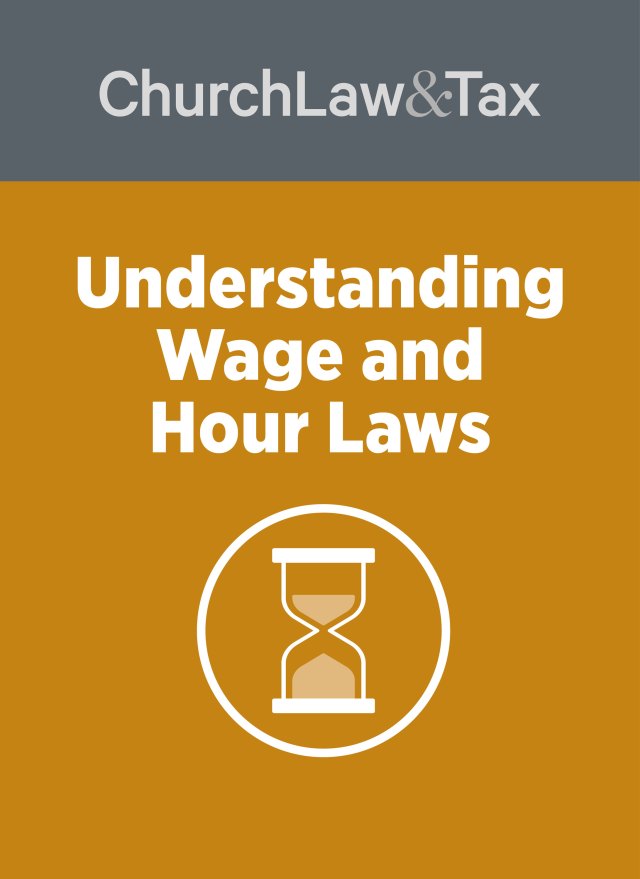Key Point 8-22. In most states, employees who are hired for an indefinite period are considered "at will" employees. This means that the employment relationship may be terminated at will by either the employer or employee, with or without cause, and with or without notice. The courts and state legislatures have created a number of exceptions to the at will employment rule. These exceptions limit the right of an employer to terminate an at will employee. Employees who are hired for a specific term are not at will employees, and they may be terminated only if the employer has "good cause."
Key Point 8-25. Employers often evaluate some or all of their employees on a periodic basis. Such evaluations can help employees be more productive, but they also can be used as evidence of discrimination if an employee who is a member of a protected class under a state or federal employment law is terminated despite average or above-average evaluations.
A Connecticut court ruled that a church employee who was dismissed from employment could sue the church for violation of public policy and emotional distress, but not negligence or blacklisting.
A church hired a woman (the "plaintiff") as the director of its school. She was employed in this position for six years. In her last annual performance evaluation the church rated her as satisfactory and did not provide any indication that it was unhappy with her job performance.
Shortly after this performance evaluation was prepared, the plaintiff expressed an objection to the church's use of a tuition increase to make improvements to the church. She informed church leaders that it was improper for the church to tell the children's parents that the tuition increase would be utilized by the school when actually it was being used for the general use of the church. The church dismissed the plaintiff as an employee a few days after she raised her objection. The plaintiff sued the church on the following four grounds:
Negligence per se
The plaintiff claimed that the church was liable on the basis of the legal principle of "negligence per se" for violating a state law providing that "no individually identifiable information contained in the personnel file … of any employee shall be disclosed by an employer to any person or entity not employed by or affiliated with the employer without the written authorization of such employee."
Under the doctrine of negligence per se, a person who violates a statute can be sued for monetary damages if (1) the purpose of the statute is to protect the interest of the plaintiff, individually, as opposed to the public; (2) the statute must clearly apply to the conduct of the defendant; (3) the defendant must violate the statute; and (4) the violation of the statute must cause the plaintiff's injury.
The plaintiff claimed that the church violated the statute by failing to implement proper policies to prevent its employees from disclosing confidential information contained in her personnel file, and that this violation amounted to negligence per se since she was within the class of persons protected by the statute. The court disagreed, noting that the statute did specifically authorize private lawsuits as a remedy for its violation.
Blacklisting
The plaintiff also sued the church for "blacklisting" her. Specifically, she claimed that the church "propagated to potential employers her name and false information concerning her with the intent and for the purpose of preventing her from securing employment with potential employers." Once again, the court concluded that no statute authorized private lawsuits by victims of blacklisting, and it declined to create such a remedy.
Violation of public policy
The plaintiff claimed that her termination violated public policy since it was based on her objection to what she believed to be an unethical practice of her employer. In particular, she alleged that it was a violation of public policy for a church (1) to mislead persons concerning the intended use of the funds it solicits, and (2) to solicit payment with a promise that the payment will result in one receiving a better product, knowing that it is not the case.
The church insisted that neither of these public policies was violated by the plaintiff's dismissal, or even related to her dismissal. The court refused the church's request to dismiss this claim.
Emotional distress
The plaintiff claimed that the church negligently inflicted emotional distress upon her in its termination process when it falsely accused her, in writing, of misconduct, including falsely accusing her of conduct constituting theft, embezzlement, and falsification of records and repeated dishonesty.
She claimed to have been further emotionally distressed "as there was a reasonable chance that she will be compelled to confront the false reasons given by the church for her termination to future employers, when they ask her concerning the reasons for her separation from employment."
She also claimed that she was emotionally distressed because the church negligently waited until after the start of the school year to terminate her employment knowing that it would be more difficult for her to obtain subsequent employment. The church asked the court to dismiss the plaintiff's emotional distress claim because its conduct in the termination process was not unreasonable. The court denied this request.
In summary, the court permitted the plaintiff to pursue her third and fourth claims against the church. 2007 WL 2570443 (Conn. Super. 2007).
See also "Compensation," Trinity Baptist Church v. Howard, 869 N.E.2d 1225 (Ind. App. 2007), in the Legal Developments section of this website.



